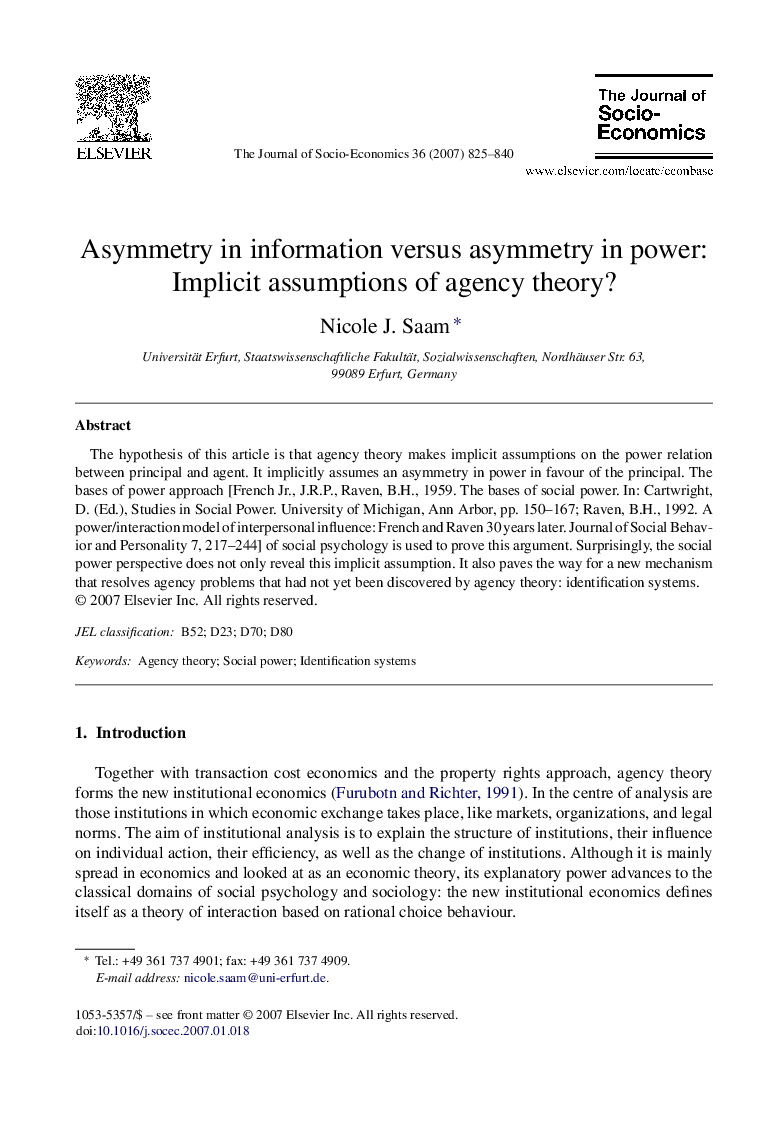| Article ID | Journal | Published Year | Pages | File Type |
|---|---|---|---|---|
| 971448 | The Journal of Socio-Economics | 2007 | 16 Pages |
The hypothesis of this article is that agency theory makes implicit assumptions on the power relation between principal and agent. It implicitly assumes an asymmetry in power in favour of the principal. The bases of power approach [French Jr., J.R.P., Raven, B.H., 1959. The bases of social power. In: Cartwright, D. (Ed.), Studies in Social Power. University of Michigan, Ann Arbor, pp. 150–167; Raven, B.H., 1992. A power/interaction model of interpersonal influence: French and Raven 30 years later. Journal of Social Behavior and Personality 7, 217–244] of social psychology is used to prove this argument. Surprisingly, the social power perspective does not only reveal this implicit assumption. It also paves the way for a new mechanism that resolves agency problems that had not yet been discovered by agency theory: identification systems.
